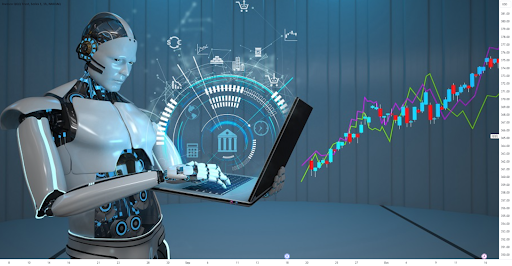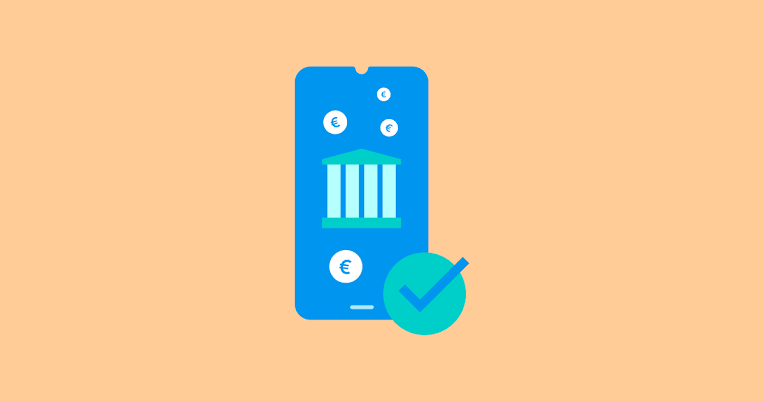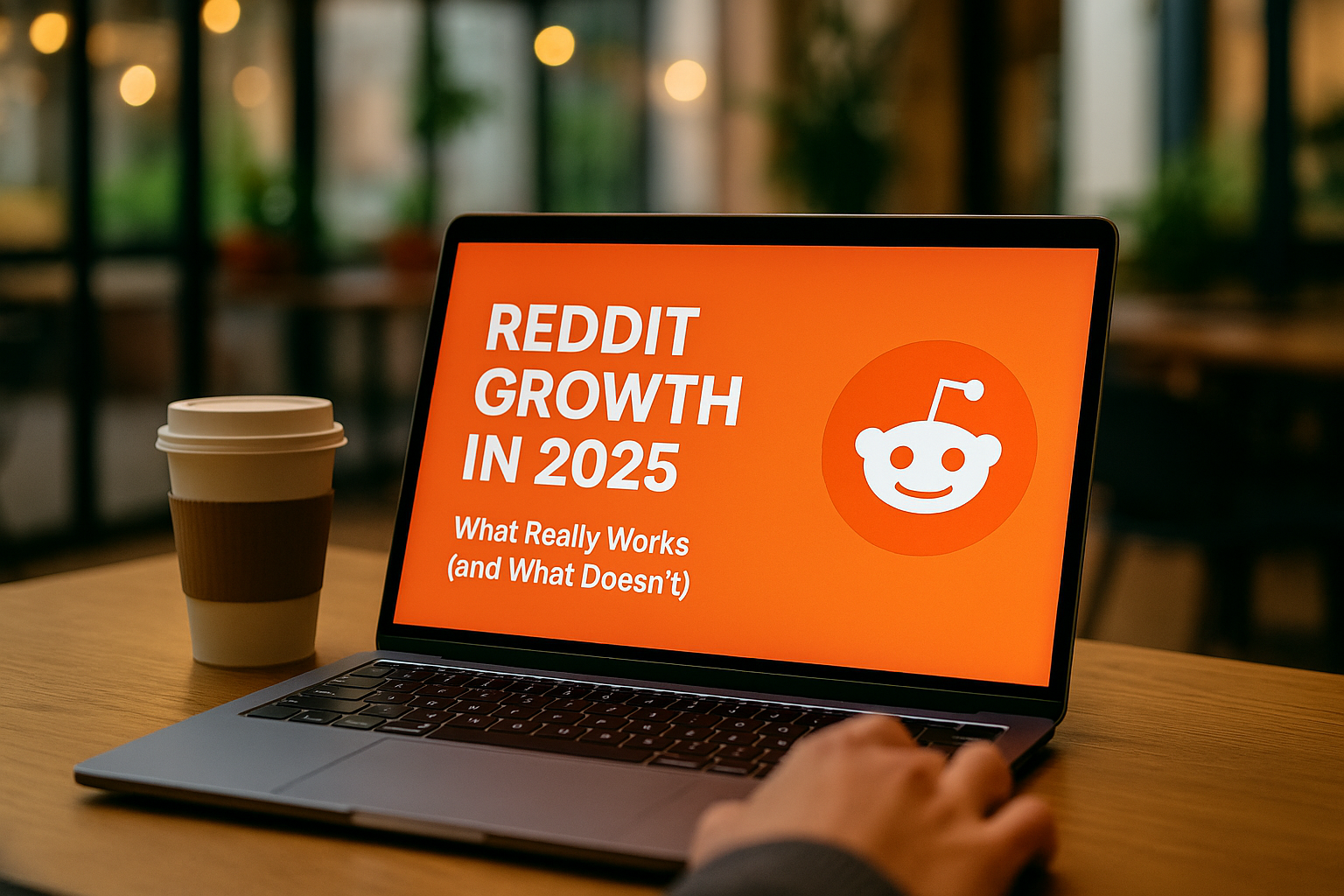Is artificial intelligence redesigning the traditional stock markets?
Are these cutting-edge technologies altering the stock market trading for good?
Is there any off-balance in the market structure because of these technologies?
The embedding of AI traders into the stock markets lifts these and many other questions. This is because AI’s involvement in the financial landscape is increasing day by day.
This blog will help you understand how AI traders are updating traditional stock trading.
How AI Traders Are Reshaping Traditional Stock Market Dynamics?
Traditional stock market trading has faced huge changes because of the introduction of AI systems in the market. The dynamics of stock trading have quite changed now. AI can handle and process huge data points which human traders can only dream of achieving. These systems pull usable patterns to conduct trades quickly.
Improved Productivity
AI trading platforms such as AI Trader App, are running trades at a speed and preciseness that traditional traders can’t seize. These platforms reduce delays and lower costs. They stimulate stock markets to function more successfully. For Institutional investors like hedge funds, it is extremely painful to handle such huge portfolios. AI trades have served as saviours to institutional investors. They can handle their portfolios effortlessly with the least human disruption.
Data-Backed Decisions
AI bots like AI Trader count on machine learning algorithms for major trading tasks. They use their canny AI tools to give traders a look back into past market data. They can guess the future markets peeking through past market trends. These tools also use digital media sentiments and news reports to foretell upcoming market moves. Thus, AI traders can better identify the opportunities that human traders often pass by.
Market Adaption
The advancements of AI in trading are tempting traditional stock markets to adapt to them. These markets are increasingly accommodating to these advances. They are integrating blockchain technologies into their systems. This integration will increase clarity in their operations. Stock markets are also introducing algorithmic trading platforms. AI trader systems have now topped the trading environments. Therefore, the financial markets are striving to adopt them.
Effect of AI-Driven Trading Strategies on Stock Market Volatility
AI Trader systems have improved the productivity of stock market trading. However, they have also increased market instability.
Flash Crashes
One of the most marked impacts of AI-propelled trading is its role in rising flash crashes. When AI algorithms respond to market irregularities, these hasty and severe price falls take place. The algorithmic trading operations result in serious price fluctuations. High-frequency trading techniques also trigger fast sell-offs.
Expansion of Trends
AI traders cause a rise in market trends when they carry out large volumes of trades. This expansion of trends is caused by similar algorithms. Various AI trader systems observe the same trading practices. Their joint effect results in stretched market movements. Thus, they collectively increase market volatility.
Risk of Overfitting
Machine learning models that AI traders use, sometimes “overfit” historical data. This overfitting makes these systems less useful in unforeseen situations. Therefore, excessive reliance on past trends results in market fluctuations under unforeseen conditions.
Impact of Artificial Intelligence on Investor Behavior in Traditional Stock Markets
AI has now made the trading execution process faster and more accurate. But the most affected is the behaviour of investors. The following states evidence of how AI brings behavioural changes in investors.
Increased Competition
The systems for AI traders have increased competition for individual and institutional investors. They are winning stock markets today. There has been increased competitive pressure on investors. Traditional investors have been forced to go to the AI tool for assimilation. Most have oriented their algorithmic trading systems. This is how they effort to reduce the competitive advantage.
Doing Business Different
Investors are doing a rethinking of their trading approach in the stock market. Most now prefer trading for the short term. Many of them are moving from the long term. This is because trading algorithms have improved immediacy between price rises and drops in the market. This enables traders to turn profits quickly.
Psychological Influence
With the introduction of AI, human investors have been affected. Such AI systems came with changes to them concerning their trading behavioural attitudes. Most will now have to survive under more rocky market conditions, which is not very good for them. They are more prudent or erratic in their trading approaches. This again affects the momentum of the stock market.
Accessibility of Trading Tools
AI trader platforms are available to retail traders at minimal affordability. Their financial goals have become highly realizable now. They can have the latest stock trading tools. This accessibility has increased competition even more. Traders can take advantage of automated trade functions at AI Trader systems. They can now enjoy personalized trading recommendations, portfolio growth, and enhanced risk conditioning.
AI Index in Future Stock Markets
AI is developing day by day in stock markets. The AI’s role in providing AI trading solutions makes it popular in the financial markets. Following these changes will be most probably in the next future markets:
Regulatory Changes
The countries and financial authorities, therefore, foresee tighter rules. That is basically to reduce the extent of risks related to AI trading. These measures will reduce flash crashes and market manipulation.
Blockchain Technology
Furthermore, embedding blockchain technology in AI Trader systems is being discussed. This incorporation will further facilitate transaction visibility. It will also result in increased security levels. Thus, it will reduce fears regarding high-frequency trading methods.
Moral Concerns
The moral implications have also come with AI integration into trading. Who will pay for the damage if the market gets disturbed because of an algorithmic trading decision? AI systems have also diminished the element of fairness in the markets. Addressing these issues is vital for fair stock market trading.
Conclusion
AI Trader systems have transformed the way traditional stock markets are traded. The involvement of AI lends an unusual efficiency to trades. It is increasing market instability and uncertainty for human investors. It is never going to stop evolving and bringing changes in the trading domain. Therefore, it is necessary to balance the usage of AI technology and the market’s increased instability.
Thus, AI has brought both exciting opportunities as well as openness to stock markets. However, one thing is obvious every trader needs to adapt to this revolutionizing power of AI Traders. This adaptation will help them to stay in the competition and thrive in the financial domain.





